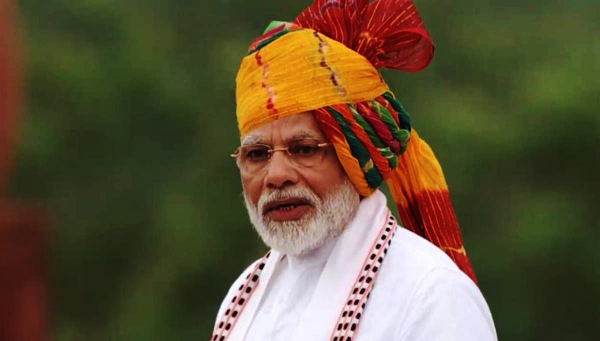Recent changes in law have provided a cumulative insurance cover of ₹76 trillion that protects deposits of 98% of all account holders in India’s banks, boosting confidence in the sector, Prime Minister Narendra Modi said on Sunday.
“Banks play a big role in the prosperity of the country, and depositors’ protection is equally important for the prosperity of banks,” Modi said at an event organised by the Union ministry of finance on Depositors First: Guaranteed Time-bound Deposit Insurance Payment up to ₹5 lakh. “If we want to save banks, then depositors have to be protected.”
The Deposit Insurance and Credit Guarantee Corporation (DICGC), a specialised arm of the Reserve Bank of India, guarantees each depositor a maximum of ₹5 lakh, including principal and interest, if a bank fails.
The government in February last year amended law to raise the insured amount from ₹1 lakh to ₹5 lakh, and in August this year set a 90-day limit to provide the insured amount to account holders. The move was aimed at providing relief to the maximum number of depositors of stressed PMC Bank, Yes Bank and Lakshmi Vilas Bank in a timebound manner.
The system of covering bank depositors was introduced in the 1960s, the Prime Minister said. Earlier, out of the amount deposited in the bank, a sum of ₹50,000 was guaranteed. It was then raised to ₹1 lakh.
Understanding the concerns of the poor, understanding the concern of the middle class, we increased this amount to ₹5 lakh,” Modi said. “Earlier, where there was no time limit for refund. Now our government has made it mandatory within 90 days.”
In the past few days, more than 100,000 depositors have got back their money worth cumulatively over ₹13 billion that was stuck for years, Modi said. He handed over cheques to some depositors on the spot at Vigyan Bhawan in the Capital.
The first portion of interim payments has been released by DICGC against claims received from depositors of 16 urban cooperative banks whose operations have been restricted by the central bank.
The government is making efforts for financial inclusion, Modi said. As a result, almost every village has banking facilities, either a branch or a banking correspondent, within a radius of 5km, the Prime Minister said.
Recent policy measures have provided facilities such as insurance and bank loans to a large, underserved segment of the poor, women, street vendors and small farmers, Modi said. More than half of Jan Dhan accounts belong to women, he said.
It helped in the economic empowerment of women, he said. The Pradhan Mantri Jan Dhan Yojana (PMJDY), the country’s financial inclusion initiative launched six years ago, has more than 403.5 million accounts with total deposits in excess of ₹1.3 trillion.
The government has taken several steps to protect depositors’ interest and strengthen banks, Union finance minister Nirmala Sitharaman said at the event. It has ensured that middle-class households, who have put their hard-earned savings in banks, get some additional protection, she said.
She also pointed to getting money back in a timely manner. ”There were cases of people who had waited for their deposits for five years, six years, seven years and couldn’t get the money back because either the bank had to be liquidated, or some kind of amalgamation had to happen (legal processes often take time),” Sitharaman said.
This was an “important milestone” in the protection of depositors, Reserve Bank governor Shaktikanta Das said on the occasion. He summed up the guiding principles of the Indian banking sector in four points – depositors first, deposit insurance, supervision for robust banking, and discerning depositors.
Source: HT
You may also like
-
Navigating India’s Skill Landscape
-
Trade Connect E-platform For Exports Is Single Window, Fast, Accessible And Transformational: Shri Piyush Goyal
-
India-us Working Together In Areas Like Critical Minerals, Supply Chains And Advanced Technologies: Shri Piyush Goyal
-
Cabinet Approves Health Coverage to All Senior Citizens of the Age 70 Years and Above Irrespective of Income
-
Cabinet Approves PM Electric Drive Revolution in Innovative Vehicle Enhancement (PM E-DRIVE) Scheme With An Outlay of ₹.10,900 Crore
